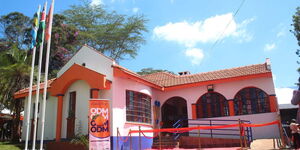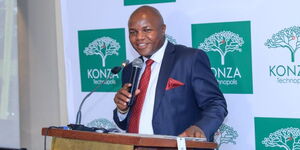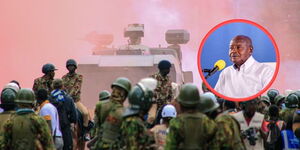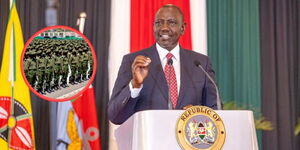The issue of rejected votes in presidential elections has been a contentious subject in the past two general elections. In the concluded General Election of August 9, the total number of rejected ballots totalled 113,614 votes.
A debate ensued in 2013 and 2017 as to whether the rejected votes should count in the final computation and determination of whether a candidate attained the 50 per cent plus one vote required to declare a president-elect.
At the heart of the matter was a group comprised of former Gatundu South legislator Moses Kuria, digital strategist Dennis Itumbi and former East African Legislative Assembly (EALA) member of parliament, Florence Jematia.
In 2013, the trio filed a petition at the Supreme Court to challenge the inclusion of the spoilt votes. In their petition, they sought to establish whether Article 138 (4) of the Constitution included the rejected votes or was restricted to valid votes only.
The Article dictates that a winner in a presidential election must attain more than half of the total cast votes.
Kuria, Itumbi and Jematia argued that the inclusion of the void votes would reduce the percentage of votes garnered by a presidential candidate and as such is a contravention of the law.
The Supreme Court, in its ruling, agreed with their submissions and ruled that rejected votes should not be included in the final computation of the final percentage of votes garnered by a presidential candidate.
In its wisdom, the bench of judges ruled that the correct interpretation of Article 138 (4) is that only valid votes cast should count in the final tally.
The decision was upheld in 2017 as the same issue took centre stage in the Raila Odinga and another versus the Independent Electoral and Boundaries Commission (IEBC) and six others.
According to the petitioners, the number of rejected votes was too high to be ignored. They pleaded with the apex court to reverse the earlier decision and hold that rejected votes should count in a presidential election.
However, the six-judge bench comprising Retired Chief Justice David Maraga, his deputy Philomena Mwilu and justices Njoki Ndung'u, Smokin Wanjala, Isaac Lenaola, and Jackton Ojwang upheld that the rejected votes should not be included in the final tally.
“A rejected vote is a vote which is void, a vote that accords no advantage to any candidate; it cannot be used in the computation of determining the threshold of 50%+1,” the judgement read.
In their August 2022 petition, Raila Odinga and Martha Karua protested that president-elect William Ruto did not attain the 50 per cent plus one vote threshold required to win a presidential election in the first round.












